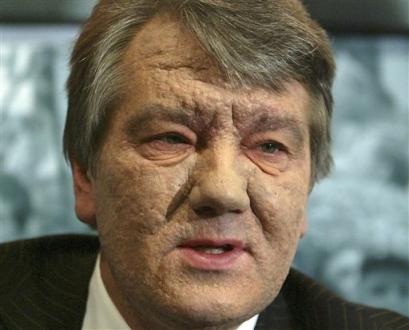New Ukrainian president could end political chaos By Stefan Korshak
 Kiev - The one thing Ukrainian politicians and voters alike agree on these days is that Viktor Yushchenko, the once-popular pro- democracy leader, has next to no chance of winning a second term in the January presidential elections.
Kiev - The one thing Ukrainian politicians and voters alike agree on these days is that Viktor Yushchenko, the once-popular pro- democracy leader, has next to no chance of winning a second term in the January presidential elections.
Today, after years of political stalemate, public expectations for significant change are dramatically lower than they were during the breathless days of the 2004 Orange Revolution.
But many political observers in the former Soviet republic are predicting that the elections, scheduled for January 17, will bring a measured degree of stability and a break from Ukraine's political deadlock.
The two top presidential contenders, Prime Minister Yulia Tymoshenko and former prime minister Viktor Yanukovich, announced their candidacies last week for the January 17 contest.
Yushchenko is widely seen as a lame duck, his political career savaged by failed reforms, government corruption, a deadlocked parliament, and a Ukrainian economy devastated by the world financial crisis. At best he will get 3 per cent of the popular vote, according to polls.
Yanukovych, leader of the opposition Party of Regions, is currently the front-runner, predicted to capture about 28 per cent of the popular vote, according to a Monday SOCIS nationwide survey. His pro-big business platform calls for government support of industry, limited workers' benefits, and "competent government leadership" focused on economic growth.
Tymoshenko, a populist politician who vows to take on corruption, would get 19 per cent of the vote, the same survey found. She was a staunch Yushchenko ally during the Orange Revolution, but they fell out over fiscal policy and determining which public officials in the current regime should be prosecuted for corruption.
Pollsters expect her to come close to matching Yanukovich's support if - as is widely predicted - no single candidate obtains a raw majority and the vote goes to a second round that pits them against each other.
No matter the name of Ukraine's next president, once that person is in office, a measure of calm might well return to Ukraine's often chaotic domestic and foreign policies, analysts said.
"There will be consolidation of power," said Sergei Shtukarin, director of the Donetsk Centre for Political Studies. "It will become much clearer who is making decisions... and (so) more decisions will be made.
"The new president, whoever it is, must ipso facto form a ruling coalition and a new government," said Pavlo Sai, an Odessa-based political scientist. "Once that happens our traditional executive- legislative conflict could disappear."
Yanukovych's Party of Regions currently controls 175 seats in Ukraine's 450-seat legislature, while Tymoshenko's Bloc of Yulia Tymoshenko holds 156 seats.
With Yanukovych supporting big business and Tymoshenko calling for a government assault on tycoons, the two parties rarely cooperated in parliament, stalling most new legislation.
Yushchenko, on taking office, initially enjoyed the loyalty of some 70 MPs, but with the entire country now assuming he will soon be voted out of office, those swing votes will likely line up behind the new president, allowing him or her to break Ukraine's long-standing parliamentary deadlock, many analysts said.
"But a lot depends on the new President's ability to build a coalition," cautioned Oleksander Kisilov, a professor at the Kharkov University Social Research Institute.
Likewise, Ukraine's sometimes tempestuous relationship with Russia is likely to settle down somewhat after the presidential election, observers said.
"Both candidates pretty much want the same thing," said Yury Yakimenko, a spokesman for the Razumkov Centre, a Kiev-based political think tank. "They are saying Ukraine must be pragmatic and defend its interests... and both want an end to (Yushchenko's ongoing) policies of seeming to go out of his way to antagonize Russia."
But that doesn9t mean the next president will be Moscow9s toady.
"(Yanukovich and his political associates) may speak Russian, but they are not going to work for Russia. They will put Ukrainian interests first," Shtukarin said." I think even in Moscow, they understand they won't be able to dictate terms to the Yanukovych team."
"(Tymoshenko) has worked with the Russians before, and if they don't always like her they know her well," Kisilov said. "And she is for calm, not confrontational, relations with Russia." (dpa)